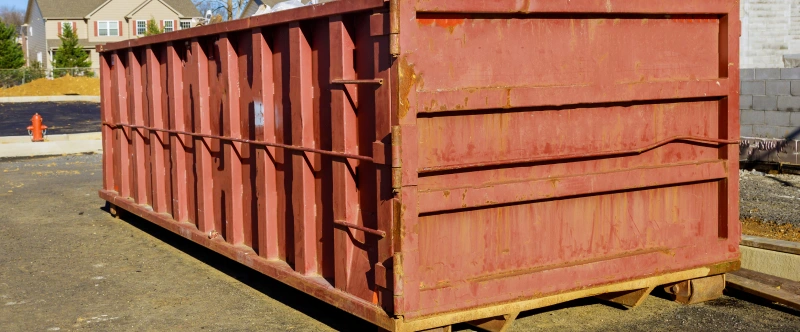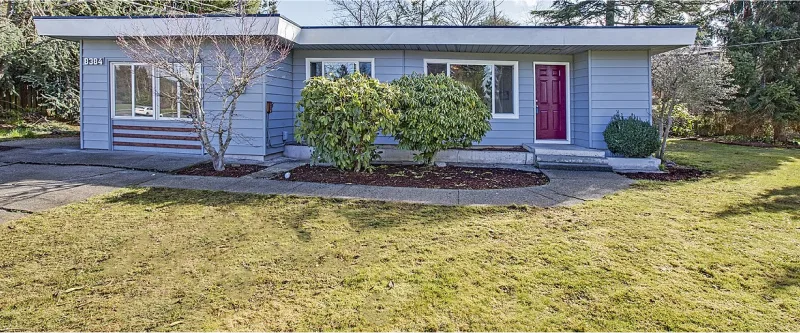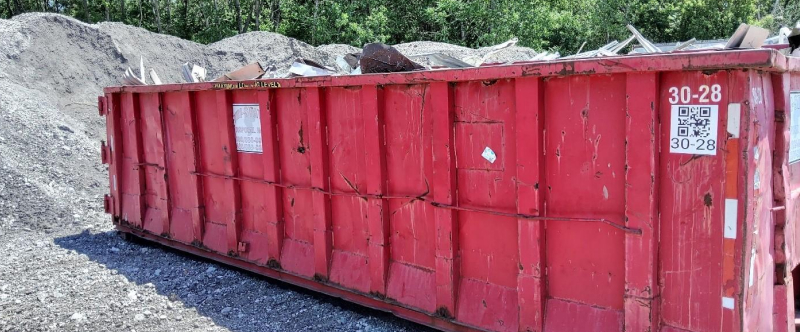Managing waste effectively is a very crucial aspect of any project, be it a bustling commercial enterprise or a large-scale construction project. Among the different types of equipment used to ease and aid the process of waste management, dumpsters play a crucial role.
However, not all dumpsters are created equal. The choice of dumpster can influence the efficiency of waste disposal, cost-effectiveness, and overall productivity.
Two prominent types are commercial dumpsters and roll-off dumpsters. Commercial dumpsters and roll-off dumpsters are utilized for distinct purposes and are tailored to meet specific needs. To understand these specific use cases and determine which one will be a perfect fit for your project, we will go through some of the key differences between commercial and roll-off dumpsters, examining their features, uses, benefits, and considerations.
Understanding Commercial Dumpsters
Definition and Design
Commercial dumpsters, also commonly known as front-load dumpsters, are frequently utilized by businesses for routine waste collection. These dumpsters are designed to be durable and easy to access, making them ideal for routine waste disposal needs. They are available in a range of sizes, typically from 2 to 8 cubic yards, to accommodate different volumes of waste.
Usage Scenarios
Commercial dumpsters are predominantly used by:
- Restaurants: For daily disposal of food waste and packaging materials. These dumpsters help manage the large volumes of waste generated from food preparation, leftovers, and packaging, ensuring a clean and hygienic environment.
- Retail Stores: To manage waste generated from packaging, damaged goods, and other refuse. Retail stores often deal with various types of waste, including cardboard, plastic, and unsellable items, which are efficiently managed with commercial dumpsters.
- Offices: For regular disposal of paper waste, office supplies, and other non-hazardous materials. Offices generate a significant amount of paper waste, discarded office supplies, and other non-hazardous items, making commercial dumpsters essential for maintaining a clutter-free workspace.
- Apartment Complexes: To handle residential waste from multiple units. Apartment complexes benefit from commercial dumpsters by providing a centralized waste disposal solution for residents, ensuring the communal areas remain clean and waste is managed efficiently.
Features
Lid and Access: Typically, commercial dumpsters are equipped with covers to trap unpleasant smells and prevent pests from reaching the garbage. The lids can be easily opened for waste disposal, helping maintain a clean environment by keeping waste contained and reducing unpleasant smells and pest problems.
Front-Load Mechanism: These dumpsters are serviced by front-load garbage trucks that lift the dumpster over the truck using prongs and empty the contents into the truck’s hopper. This efficient mechanism allows for quick and easy waste collection, minimizing disruption to the business or residential area.
Benefits
- Convenience: Ideal for locations with regular waste generation, providing a convenient solution for ongoing waste disposal needs. The ease of access and regular service make commercial dumpsters a hassle-free option for managing everyday waste.
- Space-Efficient: Designed to fit in tight spaces, these make the perfect choices for urban projects. Thanks to their compact design, they can be easily placed in alleys, parking lots, or other restricted spaces without hindering operations or aesthetics
- Regular Pickup: Scheduled waste collection services play a crucial role in ensuring reliable waste removal. This regularity helps businesses and residential complexes maintain a clean and organized environment, avoiding the accumulation of waste and associated health risks.
Understanding Roll-Off Dumpsters
Definition and Design
Roll-off dumpsters, which are also called roll-off containers, are designed for temporary use in projects that produce a large amount of waste. These dumpsters are delivered and collected by specialized roll-off trucks equipped with hydraulic systems for rolling the dumpster on and off the truck bed. Roll-off dumpsters are available in a range of sizes, typically from 10 to 40 cubic yards.
Usage Scenarios
Roll-off dumpsters are commonly used for:
- Construction Sites: During construction projects, these waste containers play a vital role in handling the large volume of waste, maintaining site organization, and complying with waste management regulations. These dumpsters are ideal to rent when you’re doing demolition, or you need a dumpster for heavy concrete removal.
- Renovation Projects: To handle waste generated from home or commercial renovations, such as old fixtures, tiles, and insulation. Renovation projects often generate large and bulky waste items that need to be disposed of efficiently, and roll-off dumpsters provide the necessary capacity and convenience for these tasks.
- Large Cleanouts: For significant cleanout projects, including estate cleanouts, foreclosures, and large-scale decluttering. When dealing with the clearance of large volumes of household items, furniture, and other accumulated waste, roll-off dumpsters offer an effective solution to manage and remove unwanted items in one go.
- Landscaping Projects: Landscaping projects can produce a significant amount of organic green waste such as pruned branches, trees, soil, etc., and roll-off dumpsters are ideal for collecting and disposing of green waste, ensuring the project area stays clean and functional.
Features
- Open-Top Design: Roll-off dumpsters have an open top, allowing for easy loading of large and bulky items. This design feature is particularly beneficial for projects involving oversized debris, as it eliminates the need for lifting heavy items over high sides, making the loading process faster and safer.
- Roll-Off Mechanism: These dumpsters are transported using roll-off trucks that can easily load and unload the containers by rolling them on and off the truck bed. This mechanism ensures efficient and flexible placement and removal of the dumpster, accommodating the dynamic needs of various project sites.
- Heavy-Duty Construction: Built to withstand heavy and abrasive materials, making them suitable for construction and demolition waste. The robust construction of roll-off dumpsters ensures they can handle rough and heavy debris without damage, providing a reliable waste management solution for demanding projects.
Benefits
- Large Capacity: Perfect for projects that produce substantial amounts of waste, minimizing the requirement for making numerous trips to get rid of the debris. With sizes ranging from 10 to 40 cubic yards, roll-off dumpsters can accommodate substantial amounts of waste, minimizing the frequency of waste removal and enhancing project efficiency.
- Versatility: A perfect fit for a wide range of waste types, including construction debris, household junk, and yard waste. This versatility makes roll-off dumpsters a flexible choice for various projects, from construction to cleanouts and landscaping, providing a comprehensive waste management solution.
Key Differences Between Commercial and Roll-Off Dumpsters
1. Size and Capacity
The size and capacity of commercial and roll-off dumpsters differ significantly. Commercial dumpsters, which have capacities ranging from 2 to 8 cubic yards, are smaller and suitable for regular waste disposal needs. In contrast, roll-off dumpsters are much larger, with capacities ranging from 10 to 40 cubic yards, designed to handle substantial volumes of waste generated by construction sites, large cleanouts, and renovation projects.
2. Usage and Application
The usage scenarios for commercial and roll-off dumpsters differ significantly. Commercial dumpsters are intended for regular, ongoing waste disposal, making them ideal for businesses, apartment complexes, and office buildings. They are part of scheduled waste collection services and are typically placed in permanent locations for easy access.
On the contrary, roll-off dumpsters are intended for temporary use in specific projects. They are dropped on the site and removed once the project is completed. This makes them suitable for construction sites, renovation projects, and large-scale cleanouts where a significant amount of waste is generated over a short period.
3. Design and Features
Commercial dumpsters are closed with a lid to trap bad odors and avoid any infestations. They often have wheels for easy maneuverability and are serviced by front-load garbage trucks. The design is compact and efficient, perfectly suited for small spaces in urban environments.
Roll-off dumpsters, however, have an open-top design, allowing for easy loading of large and bulky items. They are transported by roll-off trucks that use a hydraulic system to load and unload the dumpsters. The heavy-duty construction of roll-off dumpsters makes them ideal for handling construction debris and other heavy materials.
4. Frequency of Service
Commercial dumpsters are part of a regular waste collection schedule, with pickups occurring daily, weekly, or as needed. This ensures consistent waste removal and is crucial for businesses that tend to accumulate waste on a regular basis.
Roll-off dumpsters are serviced on a more flexible schedule, depending on the duration of the project. Once the dumpster is filled, it is picked up and replaced if necessary. This flexibility is essential for construction sites and renovation projects, where the amount of waste can vary significantly.
5. Cost Considerations
The cost structure for commercial and roll-off dumpsters also varies. Commercial dumpsters are typically part of a subscription-based service, with regular pickups included in the fee. This predictable cost structure is suitable for businesses that need waste disposal regularly.
Conversely, roll-off dumpsters are usually rented temporarily. The price is determined by the dumpster’s size, the rental duration, and the kind of waste being disposed of. While the initial cost may be higher, roll-off dumpsters offer the flexibility and capacity needed for large-scale projects.
Choose S&A Container Service for Your Next Dumpster Rental
When it comes to reliable and efficient dumpster rentals, S&A Container Service stands out as a top choice. With a commitment to exceptional customer service and a wide range of dumpster options, it caters to various waste management needs, from small commercial projects to large-scale construction sites.
S&A Container Service prioritizes customer satisfaction by offering flexible rental terms, competitive pricing, and environmentally responsible waste disposal practices. By choosing S&A Container Service, you are not only ensuring a seamless waste management experience but also contributing to a cleaner, more sustainable environment.
Key Takeaways
Understanding the differences between commercial and roll-off dumpsters is essential for effective waste management. Different kinds of dumpsters are used for specific reasons and are designed to fulfill unique requirements. Commercial dumpsters are ideal for businesses with regular waste disposal requirements, offering convenience and regular pickups. Roll-off dumpsters, with their large capacity and temporary nature, are perfect for construction sites, renovation projects, and large cleanouts. By assessing your waste management needs, considering the type and volume of waste, and evaluating space and budget constraints, you can make an informed decision that enhances the efficiency and effectiveness of your waste disposal strategy.
Frequently Asked Questions
Q: Are there any materials that cannot be disposed of in commercial or roll-off dumpsters?
Yes, specific hazardous materials are prohibited from being disposed of in standard dumpsters. These include items like paint, chemicals, batteries, asbestos, tires, and certain types of electronic waste. Your dumpster rental provider will guide you on how to follow proper disposal procedures and what not to dispose of in the dumpsters.
Q: How is pricing determined for commercial and roll-off dumpster rentals?
Pricing for dumpster rentals is typically based on factors such as the dumpster size, the rental period, the type of waste being disposed of, and your location. Keep in mind that additional fees may be applied for exceeding weight limits, prohibited items, or extended rental periods. To get an accurate quote, communicate properly with your provider with all the project details.
Q: What if my dumpster gets filled early?
If your dumpster fills up before your project is finished, contact your rental provider to schedule an additional pick-up and delivery of an empty dumpster. This process, often referred to as a “swap-out,” ensures that you have continuous waste disposal capability without interrupting your project.
Q: Can I recycle materials using a commercial or roll-off dumpster?
Yes, many dumpster rental providers offer recycling options for certain materials. It’s important to separate recyclable materials such as metal, cardboard, and certain plastics from general waste. Consult with your rental provider to understand their recycling policies and ensure that recyclable materials are properly sorted and disposed of.
Q: How do I prepare my site for a roll-off dumpster delivery?
Before the roll-off dumpster delivery, make sure there is enough room for the truck to move and position the dumpster. Remove any obstructions, like cars or debris, from the allocated area. The ground should be firm and even bear the weight of the dumpster. Inform the rental provider about any particular placement instructions to guarantee a trouble-free delivery.


